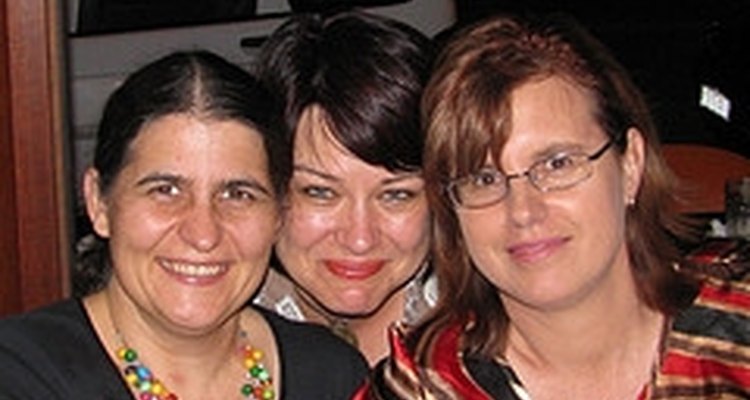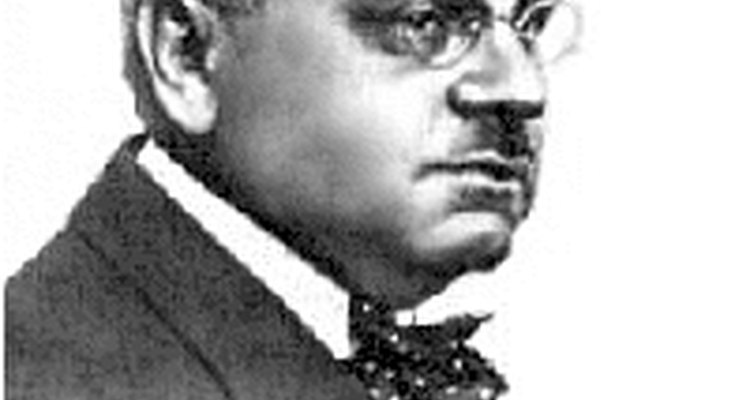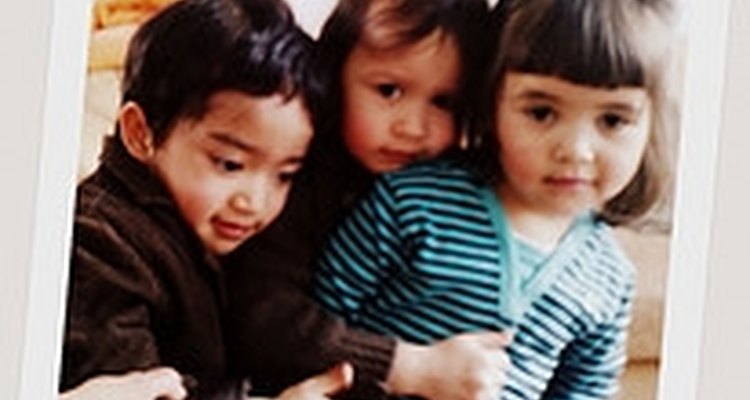
In Dr. Kevin Lehman's "The Birth Order Book," he describes a grown middle-child lamenting his position in the family, describing himself as having been born too late and too soon. As an adult, you might still hear your parents telling you that you were too young to do what your older sibling did and too old to act like your younger sibling. Even so, it might come as a surprise to learn that the challenges you faced as a youngster might help prepare you for life as an adult.
History

In his clinical works on individual psychology, Alfred Adler (1870 -- 1937), the father of individual psychology, attributed significance to a person's birth order in the family. He appointed certain characteristics to the middle child, particularly his drive to compete with and, later, to eclipse the accomplishments of his older sibling (see Reference 1).
Significance

According to Lehman, the middle child's birth order deprives him of the special distinction afforded his older and younger sibling. If you are a middle child, your position in the family might have caused you to feel excluded from the family spotlight and might have left you competing for your parents' attention. Children born between the first child and the last struggle for recognition and respect from their families (see Reference 2).
Effects

After growing up in the middle, you might see yourself developing into an adult whose background in the middle prepared you for reality; as a result, you might work harder for recognition while making fewer demands from others along the way. Lehman's research suggests that middle-born children often evolve into resourceful, tenacious adults capable of turning obstacles into opportunities. You might see yourself reflected in Lehman's depiction of a middle child whose background prepared him for life and gave him the tools needed to compromise, empathize and share (see Reference 2).
Considerations

Lehman's research indicates that because of an adult's experience as a middle child, he might empathize with victims of injustice. Sometimes, however, the grown-up middle child's capacity to endure unfair treatment compels others to take advantage of him. If you grew up in the middle, you might relate to the simple explanation given by Jane, a grown middle-child, when asked why she accepted her spouse's mistreatment. "It's not so bad," she said, "I can handle it" (see Reference 2).
Benefits

Adler's studies suggest that under ordinary circumstances, a middle child faces a promising future. He also conceded that middle-born children who follow high-achieving, extraordinary siblings might experience a sense of futility and frustration while attempting to keep up with their older siblings. However, according to Adler's research, the first born establishes the pace for the next child, instilling in the middle born a pressing urge to continue moving forward. This might help set the stage for the middle child developing into a productive adult (see Reference 1).
Features

When you reach adulthood, you might resist sharing your thoughts and feelings with others, including your mate. This cautious, reserved behavior might carry over from childhood, when you might have felt excluded from the secure family circle. However, as an adult, your appreciation for being included and accepted might impel you to nurture your relationships and to stay faithful to your spouse or partner (see Reference 2).
Tips

Once they become adults, Lehman advises middle-born children not to under-sell themselves by comparing themselves to their older siblings or to others. As adults, middle-born children often possess excellent managerial skills and leadership qualities. If you receive an offer to take a job in management or in some other leadership position, don't turn it down, thinking you lack the qualities necessary to do the job. Lehman recommends going for it, using your natural middle-child skills and strengths to your advantage (see Reference 2).
Related Articles

Importance of Father & Son Relationships

How Does an Overbearing Mother Affect a ...

How to Help Your Son Deal With His ...

What Are the Advantages of Being the ...

Positive and Negative Aspects of ...

The History of School Uniform

The Effects of Sibling Jealousy

How to Deal With a Crisis in Your Family

Jealousy in Adult Siblings

How to Build a Relationship With Your ...

Consequences of Absent & Neglectful ...

Effects on Girls Raised by Single ...

How to Handle Challenging Behavior from ...

Parental Rejection in Adulthood

The Effects of an Absent Mother Figure

Why Are Some People Spineless?

Qualities of a Good Brother

Effects of Divorce on Children in ...

How to Deal With a Controlling Parent

Carol Gilligan's Theory of Gender & ...
References
- The Collected Clinical Works of Alfred Adler, Vol. 12, The General System of Individual Psychology; 2006
- The Birth Order Book; Dr. Kevin Lehman; 1984
Resources
Writer Bio
Caryss Woods-Behan uses knowledge gleaned while serving on a parents panel advisory council to the Pennsylvania Department of Health to write about treatment options for chemically-addicted youths. Her experience working as a legal assistant serves as a foundation for writing family-law articles. Woods-Behan studied food marketing at St. Joseph University in Philadelphia, Pennsylvania.
Photo Credits
shaunae/flickr.com, SweetKaran/flickr.com, Just for Fun/flickr.com, Aflcio2008/flickr.com, feverblue/flickr.com, SueWaters/flickr.com, mikebaird/flickr.com